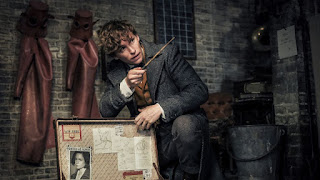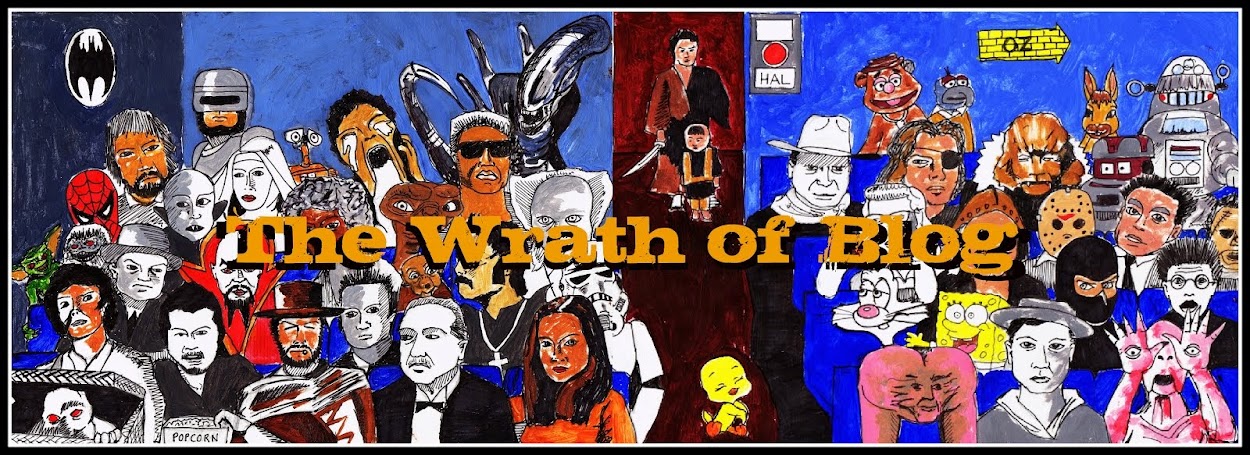 The delicate balance found by Rowling and director David Yates the first time around is sadly nowhere to be found in this follow-up, The Crimes of Grindelwald. This is part two of a five-part story, so introductions are brushed aside in favour of plot, plot and some more plot. The first hour is taken up by bringing this new group of characters back into the fold, finding Newt grounded by the Ministry of Magic following his shenanigans last time around, just as a new threat rears its ugly face in the form of Johnny Depp's muggle-hating Grindelwald. The bad wizard is searching for the troubled Credence (Ezra Miller), who has emerged in Paris with a circus performer called Nagini (Clauia Kim), but Auror Tina Goldstein (Katherine Waterston) is already on the case. It seems as though everybody is searching for Credence. Even the young Albus Dumbledore (Jude Law), who is mysteriously reluctant to face his old friend-gone-bad himself, tries to convince Newt to go to Paris in his stead. Muggle Kowalski (Dan Fogler) is also back with his memory mainly in tact, as is his girlfriend Queenie (Alison Sudol), who is struggling to deal with a Ministry ban on Wizard-Muggle relationships.
The delicate balance found by Rowling and director David Yates the first time around is sadly nowhere to be found in this follow-up, The Crimes of Grindelwald. This is part two of a five-part story, so introductions are brushed aside in favour of plot, plot and some more plot. The first hour is taken up by bringing this new group of characters back into the fold, finding Newt grounded by the Ministry of Magic following his shenanigans last time around, just as a new threat rears its ugly face in the form of Johnny Depp's muggle-hating Grindelwald. The bad wizard is searching for the troubled Credence (Ezra Miller), who has emerged in Paris with a circus performer called Nagini (Clauia Kim), but Auror Tina Goldstein (Katherine Waterston) is already on the case. It seems as though everybody is searching for Credence. Even the young Albus Dumbledore (Jude Law), who is mysteriously reluctant to face his old friend-gone-bad himself, tries to convince Newt to go to Paris in his stead. Muggle Kowalski (Dan Fogler) is also back with his memory mainly in tact, as is his girlfriend Queenie (Alison Sudol), who is struggling to deal with a Ministry ban on Wizard-Muggle relationships.The Crimes of Grindelwald throws everything it can into the mix: a rain-soaked battle in the air, Newt caught up in no less than three romantic entanglements, a detour to Hogwarts, and more name-drops and Easter eggs than you can shake a stick at. It's an unfathomable wall of information, punctured by an occasional set-piece that only truly come to life when the titular (and frustratingly sidelined) beasts are involved. The Harry Potter films dodged this bullet by allowing the audience to grow into this world, and often grow up with the characters, but Fantastic Beasts goes all out without really justifying its flagrant disregard for coherency, or earning the right to take such an approach. Although he is often pushed out of the spotlight by the many side-plots occurring, Redmayne just about holds it all together with another endearingly twitchy performance, and Law, who combines some of Michael Gambon mannerisms with a more youthful swagger, proves to be a shrewd bit of casting. Ultimately, this follow-up is too busy moving the chess pieces into place to focus on character, and many are pushed into the background as a result. There are great revelations, but after two hours of trying to keep up with who's who and what's what, they don't have much impact. It isn't enough to derail the series completely, but I'll have a hard time remembering where the hell we are by the time the third entry rolls around.
Directed by: David Yates
Starring: Eddie Redmayne, Katherine Waterston, Dan Fogler, Alison Sudol, Johnny Depp, Ezra Miller, Zoë Kravitz, Jude Law, Callum Turner, Claudia Kim
Country: UK/USA
Rating: ***
Tom Gillespie











